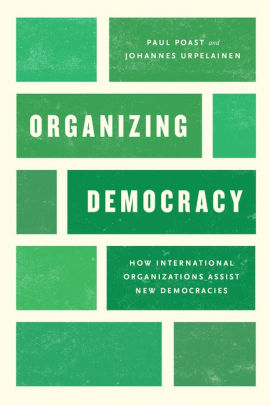Leaders of transitional democracies often must draw on the support of new international organizations to provide the public goods and technical expertise needed to consolidate democratic institutions, according to analysts Paul Poast and Johannes Urpelainen. Since some scholars question the ability of NATO to adequately support new democracies or even the continued existence of NATO itself, they use the Baltic states’ accession to NATO as a core case for exploring the relationship between democratic transitions and international organization (IO) membership.

Leaders in new democracies face two conundrums, they contend in Organizing Democracy: How International Organizations Assist New Democracies:
- First, though leaders of newly democratic states need to provide public goods in order to appease an expanded electorate,they lack the domestic institutions, bureaucracy, technical expertise, and resources necessary to provide those public goods. Stated simply, they need help organizing their democracy. Leaders join International organizations to acquire the “goodies” necessary to organize their democracy. These”goodies” include resources and technical expertise.
- Second, though leaders of new democracies desire membership in international organizations, the existing slate of available IOs might be of little help. Membership to the most lucrative existing IOs, such as NATO, is initially closed. Additionally, many existing IOs might not be well suited to the particular governance problems facing a new democracy. Hence, membership may not be “feasible” or a good “fit.”
The main drivers of the international liberal order’s key institutions were not actually the United States and the British, but “middle powers” like Denmark or Canada, for example,” Poast claims.
The Henry L. Stimson Center hosts a book discussion on “Organizing Democracy: How International Organizations Assist New Democracies” with co-author Paul Poast, assistant professor at the University of Chicago.
10 a.m. December 12, 2018
Venue: Stimson Center, 1211 Connecticut Avenue NW, Eighth Floor, Washington, D.C.
RSVP: Jim Baird, 202-478-3413, jbaird@stimson.org, communications@stimson.org; or 202-223-5956







